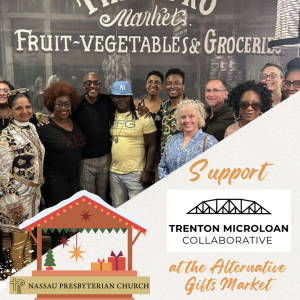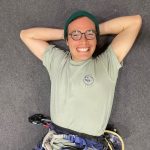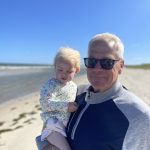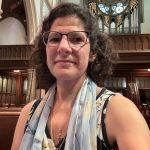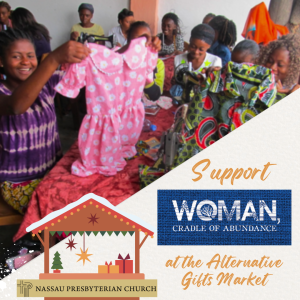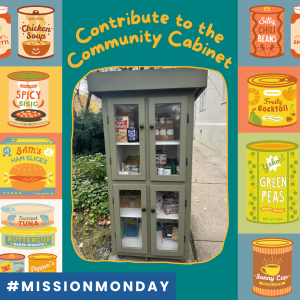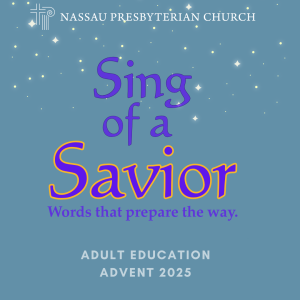
Adult Education for Advent 2025
As we “Sing of a Savior” in worship this Advent, our Adult Education series turns to the words that prepare our hearts for Christ’s coming—poems, stories, and devotions that give voice to our waiting and wonder. Each week invites us to listen, speak, and create as we join the chorus of hope that proclaims: the Word is made flesh.
Audio recordings will be posted below each class description.
🎧 Listen On the Go!
Adult Education classes and sermons are now available as podcasts on Amazon Music, Apple Podcasts, and Spotify. Search “Nassau Presbyterian Church”—follow or subscribe to be alerted when new recordings are uploaded.
Download Flyer (pdf)
November 30 | Thais Carter & Virginia Kerr
Between Promise and Arrival: An Advent Poetry Workshop
Advent invites us to dwell in the tension between promise and fulfillment, waiting and arrival. In this session of Adult Education, we’ll read and discuss poems that echo the spiritual practice of waiting — from poets who find holiness in uncertainty, patience, and hope. Through shared reflection and conversation, together we will look at how poetry can shape our Advent imagination and open us to God’s quiet presence in the meantime.
 Thais Carter is the Director for Strategic Initiatives at Princeton Theological Seminary and Associate Director of Iron Sharpening Iron, an executive leadership program serving women across the US and Canada. She serves on the Adult Education Committee for Nassau Presbyterian Church; is the current board president for the Westminster Foundation, the nonprofit that supports Princeton Presbyterians; and is a board member for LitWorld, a nonprofit focused on literacy and social-emotional learning initiatives for children and women. Her love of poetry emerged from her training with the Civic Reflection Initiative and the ways this form of expression enabled meaningful discourse across difference. She cultivates a good mix of high- and low-culture in her life, so you’re as likely to find her at a Marvel movie as you are at a poetry reading — and she would want to talk your ear off about the significance of both. She thrives in low-level chaos with her husband, Heath, and their four boys and two dogs.
Thais Carter is the Director for Strategic Initiatives at Princeton Theological Seminary and Associate Director of Iron Sharpening Iron, an executive leadership program serving women across the US and Canada. She serves on the Adult Education Committee for Nassau Presbyterian Church; is the current board president for the Westminster Foundation, the nonprofit that supports Princeton Presbyterians; and is a board member for LitWorld, a nonprofit focused on literacy and social-emotional learning initiatives for children and women. Her love of poetry emerged from her training with the Civic Reflection Initiative and the ways this form of expression enabled meaningful discourse across difference. She cultivates a good mix of high- and low-culture in her life, so you’re as likely to find her at a Marvel movie as you are at a poetry reading — and she would want to talk your ear off about the significance of both. She thrives in low-level chaos with her husband, Heath, and their four boys and two dogs.
Virginia Kerr is a Princeton attorney, a member of Nassau’s Adult Education Committee, and a member of the Steering Committee of Nassau’s Mass Incarceration Task Force. She has loved poetry from a very early age and still has fond memories of her sixth grade teacher’s reading of Millay’s The Ballad of the Harp Weaver. As a volunteer for Nassau’s ABC Prison Literacy, she taught poetry classes at New Jersey State Prison and the Mercer County Correctional Facility. In recent years, she has included poetry in story sessions she facilitated at FCI Fairton for the non-profit People & Stories, Gente y Cuentos. She has a B.A. from Bryn Mawr College, with a minor in English Literature, an M.A. in the Teaching of English from Teachers College, Columbia University, and a J.D. from the University of Pennsylvania School of Law.
return to top
December 7 | Shannon Daley-Harris
The Just Love Story Bible
Meet an author of The Just Love Story Bible, a new children’s Bible inviting families to explore God’s justice and love throughout Scripture. Shannon Daley-Harris will share how this project took shape and how it can help households nurture faith, compassion, and imagination.
The audio for this class is not available at this time.

Shannon Daley-Harris is Associate Dean at Auburn Seminary and a nationally respected leader in children’s faith formation and faith-based advocacy. A child of Nassau Presbyterian Church, Shannon grew up in this congregation, where her parents continue to worship, and where she first developed the commitment to justice, storytelling, and compassionate faith that has characterized her career.
For thirty years, Shannon guided the Children’s Defense Fund’s partnership with congregations and faith communities across the country. In that role, she helped equip churches, clergy, and lay leaders to engage deeply with issues of justice, poverty, children’s rights, and moral public witness. Her work brought together spiritual practices, policy advocacy, and community engagement in ways that have shaped generations of ministry leaders and families.
Shannon is the author of several influential resources for parents, pastors, and congregations. Her books include Hope for the Future: Answering God’s Call to Justice for Our Children (Westminster John Knox Press), a practical and theological guide to nurturing a justice-centered faith in families, and The Just Love Story Bible, a new children’s Bible inviting households to encounter God’s justice and love woven throughout Scripture. She has also written widely in articles, curricula, and devotionals that support faith leaders and caregivers in raising children with compassion, courage, and imagination.
Shannon speaks and teaches nationally, encouraging churches to embrace their role in shaping a more just and hopeful world for all children. She brings to her writing and teaching a unique blend of pastoral sensitivity, deep theological reflection, and decades of hands-on experience walking alongside families and faith communities.
return to top
December 14 | Hanna Reichel
For Such a Time as This: Christian Existence in our Current State of Emergency
How do we live faithfully in an age of rising authoritarianism, spreading politics of cruelty, and the erosion of democratic culture? By reminding ourselves that we are not alone, grounding ourselves spiritually, diving into the resources of our faith tradition, and practicing communal discernment. Neither alarmist nor complacent, Hanna Reichel draws on scripture as well as historical precedents like the Confessing Church’s resistance to Nazi Germany to offer theological framing and practical wisdom for a Christian response to the present moment.
This class was postponed due to the snowstorm. We hope to reschedule with Dr. Reichel soon.
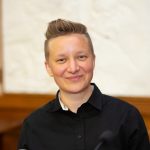
Hanna Reichel is the Charles Hodge Professor of Systematic Theology at Princeton Theological Seminary, where they teach and write at the intersection of Christian doctrine, ethics, and public life. An internationally respected scholar, Hanna’s work explores how theology responds to the urgent questions of our time—identity, justice, power, community, and the shape of faithful Christian existence in a complex and often fractured world.
A ruling elder in the Presbyterian Church (U.S.A.), Hanna also serves on the Theology Working Group of the World Communion of Reformed Churches, helping connect global Reformed communities in shared theological reflection and public witness. Their teaching and writing consistently bridge rigorous academic scholarship with the lived realities of Christian communities across cultural, political, and social contexts.
Hanna’s published work spans a wide range of topics, including Christology, theological anthropology, eschatology, the doctrine of God, theological method, and critical epistemologies. Their first book, Theologie als Bekenntnis: Karl Barths kontextuelle Lektüre des Heidelberger Katechismus, reframed Karl Barth as a contextual theologian by examining his sustained engagement with the Heidelberg Catechism. The book received both the Lautenschläger Award for Theological Promise and the Ernst Wolf Award, recognizing its contribution to modern theology.
Their second major work, After Method: Queer Grace, Conceptual Design, and the Possibility of Theology, offered an innovative rethinking of theological method by bringing queer-liberationist thought and design theory into conversation with Reformed systematic theology. Widely noted for its creative and constructive approach, the book has shaped contemporary discussions about what theology can be and do in the public sphere.
Hanna’s newest book, For Such a Time as This: An Emergency Devotional, is their first written for a broader audience beyond the academy. Drawing on Scripture and historical precedents such as the Confessing Church’s resistance to Nazi Germany, the devotional offers spiritual grounding and practical wisdom for Christians seeking to live faithfully amid rising authoritarianism, eroding democratic culture, and the politics of cruelty.
In addition to their books, Hanna is actively involved in current theological dialogues on technology, surveillance, AI, and the ethical challenges of the digital age. Their current projects include Against Humanity, a critical examination of theological understandings of the human being, and Political Theologies of Omniscience, which places contemporary surveillance technologies and artificial intelligence in conversation with historical Christian debates about divine omniscience.
Hanna regularly speaks in academic, ecclesial, and public venues—nationally and internationally—and their work has been featured in outlets such as The Atlantic, Theology Matters, and the Presbyterian Foundation’s Leading Theologically series. Their preaching, teaching, and writing invite Christians to engage the world with courage, clarity, humility, and hope.
return to top
December 21 | Maria LoBiondo
Stories of Gratitude and Blessings
As we come to the final days before Christmas, Maria will share tales from the oral tradition that highlight the themes of humility, compassion, and joy found in Mary’s song/prayer in Luke’s gospel, the Magnificat. Come hear tales that reinforce our connections to people around the world and to each other, and offer possibilities for reflection on the deeper meaning of how we welcome the Divine in our lives.
 Storyteller Maria LoBiondo delights in sharing the old tales — myths, folk and wonder tales — as well as literary tales with listeners of all ages. She believes these stories create a world of their own as they unfold in the telling, connecting us with previous generations and with each other today. Her engaging style and lively expressions have enchanted listeners for more than 30 years, including congregation members at Nassau Presbyterian, where she has told folk tales, interpretations of Tolstoy’s works, and Henry van Dyke’s classic, “The Other Wise Man.”
Storyteller Maria LoBiondo delights in sharing the old tales — myths, folk and wonder tales — as well as literary tales with listeners of all ages. She believes these stories create a world of their own as they unfold in the telling, connecting us with previous generations and with each other today. Her engaging style and lively expressions have enchanted listeners for more than 30 years, including congregation members at Nassau Presbyterian, where she has told folk tales, interpretations of Tolstoy’s works, and Henry van Dyke’s classic, “The Other Wise Man.”
Maria’s approach is shaped by the belief that stories—whether ancient or contemporary, simple or profound—carry the power to form us, guide us, and bring us closer to one another and to God. Her Advent storytelling tradition, in particular, has become a beloved part of Nassau’s seasonal rhythm, offering the congregation a chance to enter the mystery and joy of Christ’s coming through the beauty of story.
return to top

